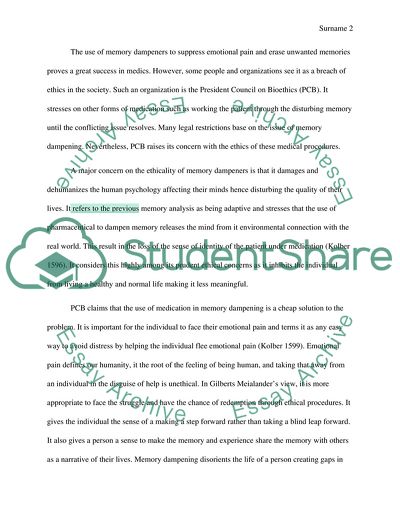Cite this document
(The Use of Memory Case Study Example | Topics and Well Written Essays - 1250 words, n.d.)
The Use of Memory Case Study Example | Topics and Well Written Essays - 1250 words. https://studentshare.org/psychology/1862007-ethical-concerns-about-memory-dampeners
The Use of Memory Case Study Example | Topics and Well Written Essays - 1250 words. https://studentshare.org/psychology/1862007-ethical-concerns-about-memory-dampeners
(The Use of Memory Case Study Example | Topics and Well Written Essays - 1250 Words)
The Use of Memory Case Study Example | Topics and Well Written Essays - 1250 Words. https://studentshare.org/psychology/1862007-ethical-concerns-about-memory-dampeners.
The Use of Memory Case Study Example | Topics and Well Written Essays - 1250 Words. https://studentshare.org/psychology/1862007-ethical-concerns-about-memory-dampeners.
“The Use of Memory Case Study Example | Topics and Well Written Essays - 1250 Words”. https://studentshare.org/psychology/1862007-ethical-concerns-about-memory-dampeners.


